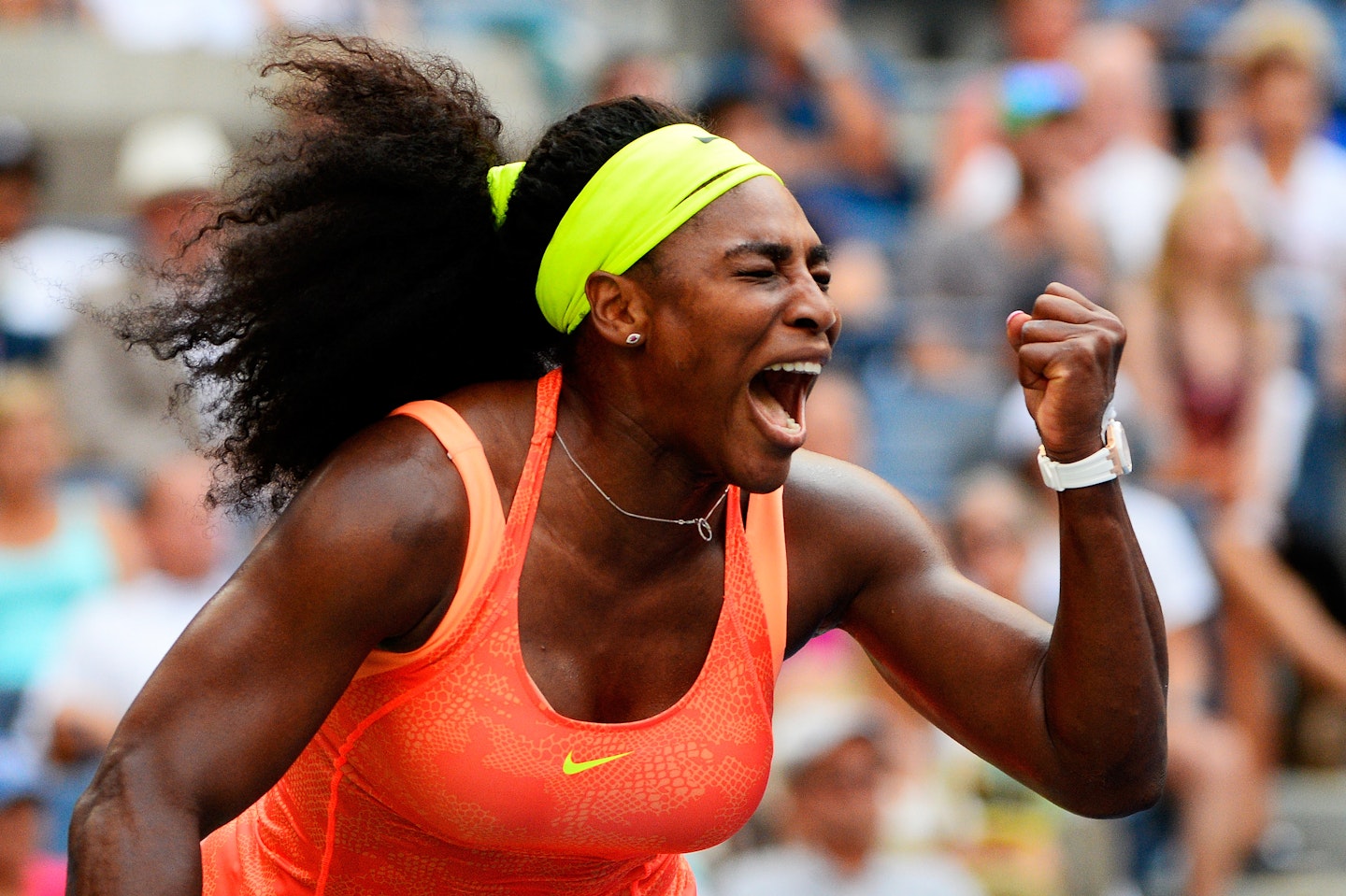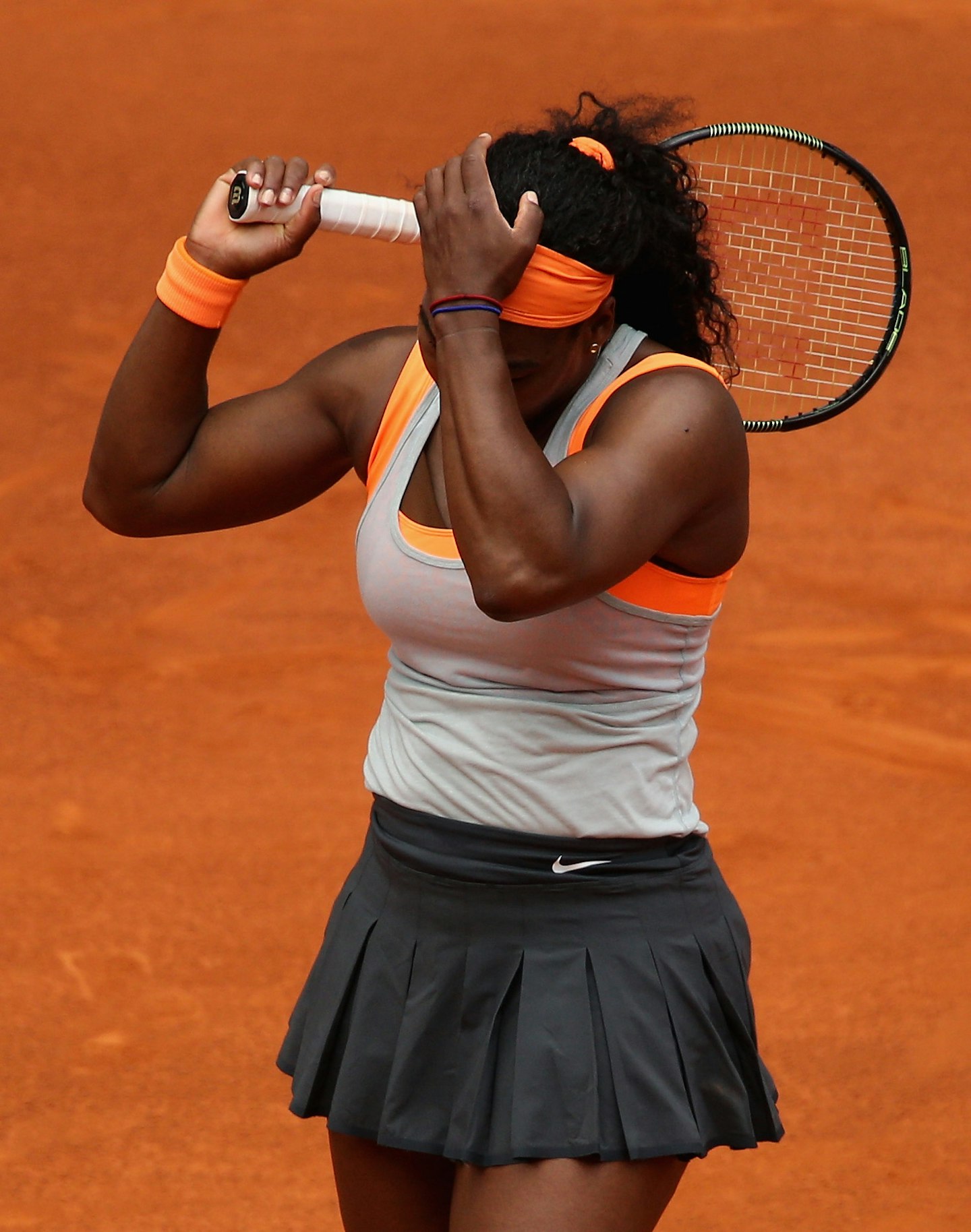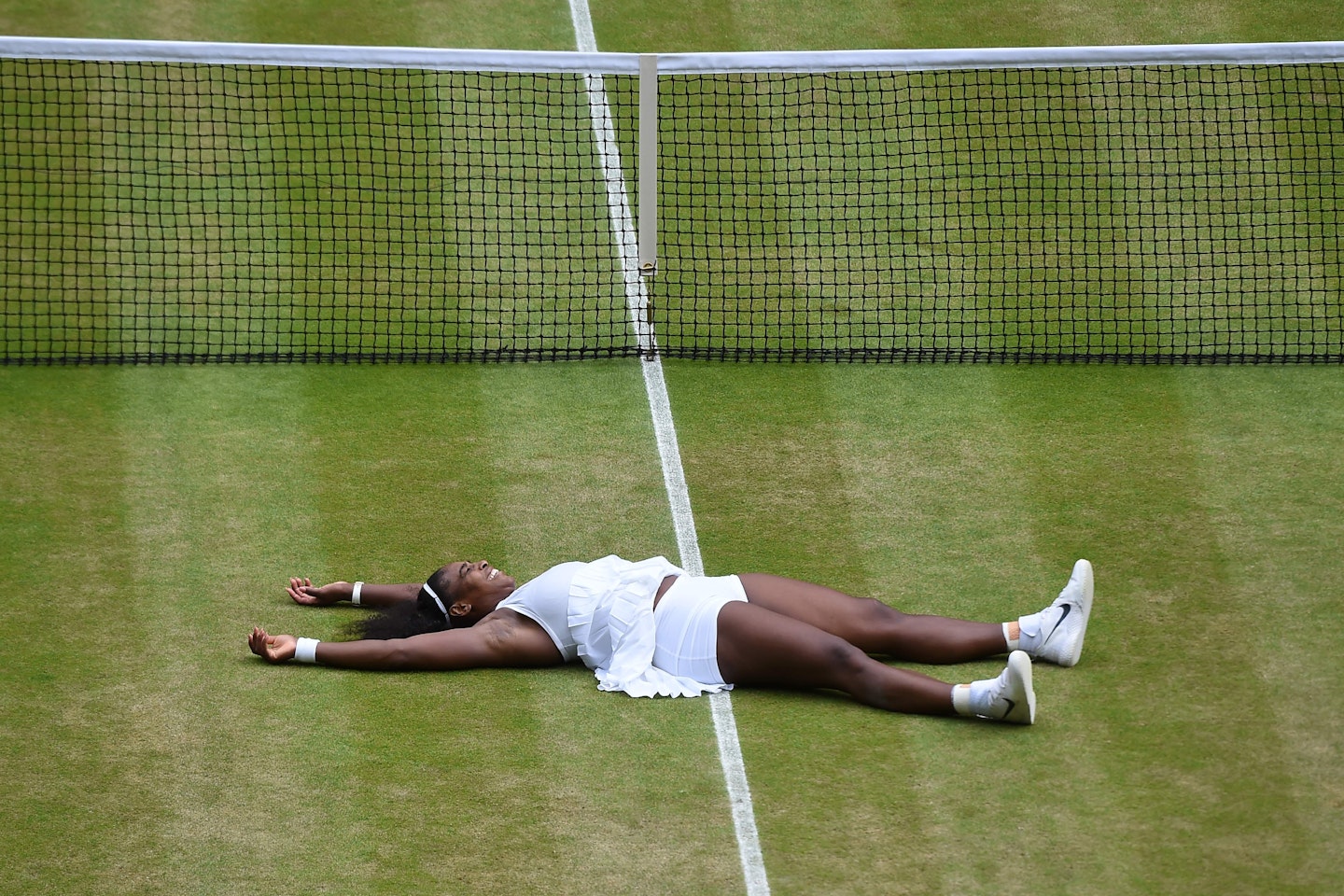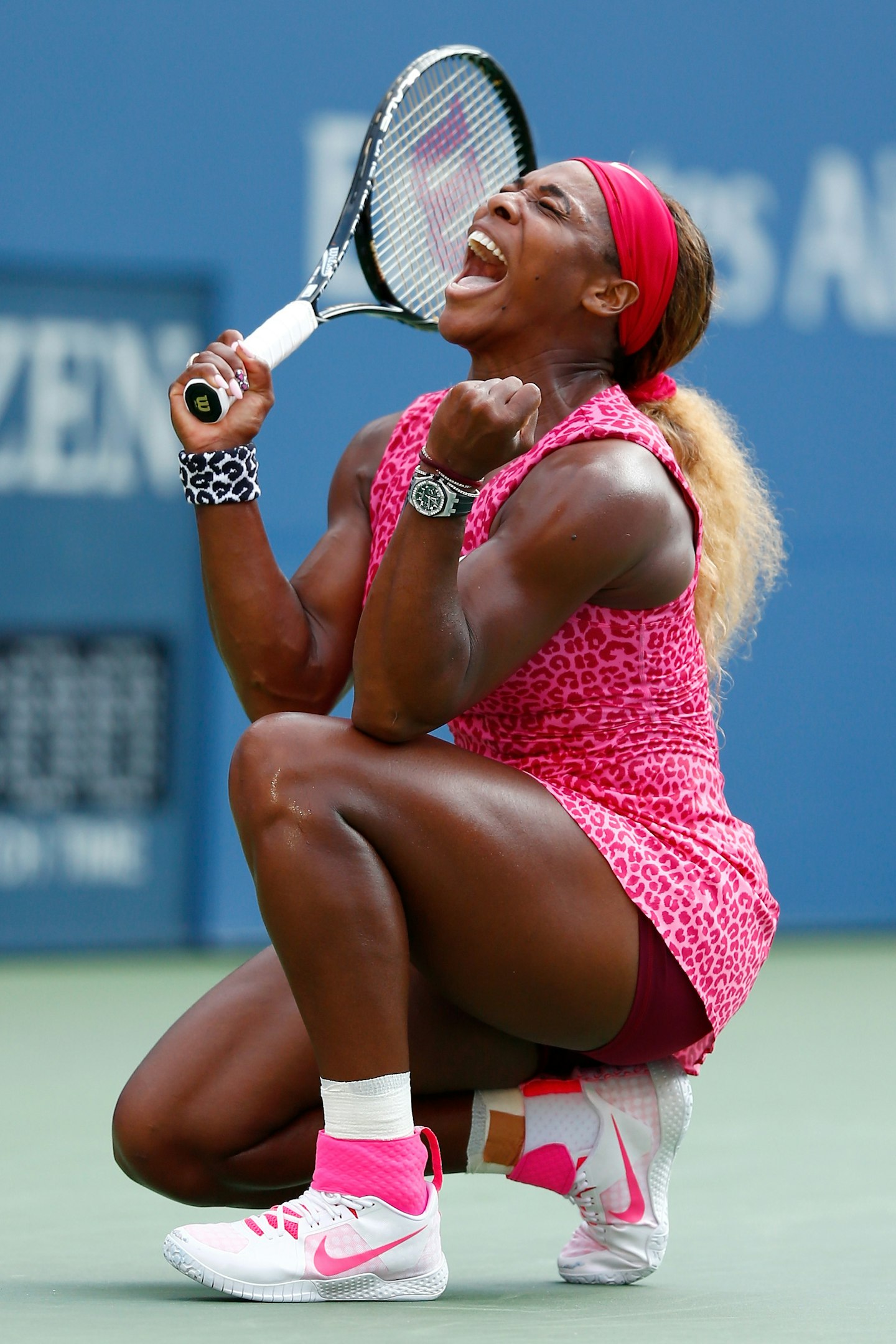Has there ever been a more spectacularly fraught US Open Final as the one between Serena Williams and Naomi Osaka? The tennis-watching world gaped as umpire Carlos Ramos penalised Williams, first for a violation of rules concerning unsanctioned coaching, before docking her a point for throwing her racket. Finally, as tensions escalated, he called a third violation – essentially awarding the game to Osaka. After being accused of cheating, which she insists she didn’t, Williams called him a ‘thief ’ and, once the episode concluded, the tennis player was fined $4,000 for the coaching violation, $3,000 for racket abuse and, in the largest fine levied so far in a US Open, $10,000 for ‘verbal abuse.’
‘Ramos helped derail a championship match,’ says former tennis star Pam Shriver, by not communicating effectively to ‘defuse an emotional player’.
‘Emotional’ is a relatively anodyne phrase for what has since become a global referendum on how – and if – women can display rage. Open displays of anger, no matter how justified, are risky for women. When your anger is represented as a form of madness, irrationality and incompetence, as is often the case with women, you have to work doubly hard not to show it.
For black women, the costs are even higher. Sociologist Moira Bailey coined the term ‘misogynoir’ to describe the overlapping discrimination black women have to navigate. The reality of dull and predictable stereotypes – like that of the deranged and irrational ‘Angry Black Woman’ – means there is no wiggle room, no freedom to act or be in the moment without a ‘second consciousness’ that wears on you constantly.
Not that it deterred Serena. ‘I’ve seen other men call other umpires several things,’ Williams pointed out in the post-match interview. ‘And I’m here fighting for women’s rights and for women’s equality... For me to say “thief” and for him to take a game? It was a sexist remark. He never took a game from a man because they said thief. For me, it blows my mind.’
Far worse epithets have been hurled at umpires – including Ramos – with little or no penalties being awarded. And yet Williams’ self-defence, the audacity of her pride and her refusal to back down rankled. The media chose to run photos of her face contorted in anger, rather than those of her gracious support for Osaka as she was awarded her trophy. She was not called the ‘bad girl’ of her sport, as some of her male peers who’ve put their anger on public display are.
But, contrary to the association of female anger with madness, childishness and irrationality, anger is, arguably, the most rational emotion. It’s a logical response to threat, harm, insult and indignity. It’s a warning that something wrong is happening and has to be remedied.
And, as I know, after spending many years researching a book on how to harness your rage successfully, anger can be good for you. Studies have shown that anger encourages ‘unstructured thinking’ when a person is engaged in creative tasks – which means if you’re angry, you’re better at generating more ideas. Even more interestingly, one study found that the ideas they came up with were highly original.
Look back at Serena Williams' best quotes in the gallery below...
Serena Williams - Grazia
 1 of 10
1 of 10serena-williams-tennis-beyonce
'Luck has nothing to do with it, because I have spent many, many hours, countless hours, on the court working for my one moment in time, not knowing when it would come.'
 2 of 10
2 of 10serena-williams-tennis-beyonce
'People want more fit arms, but my arms are too fit. But I'm not complaining. They pay my bills.'
 3 of 10
3 of 10serena-williams-tennis-beyonce
'Everyone's dream can come true if you just stick to it and work hard.'
 4 of 10
4 of 10serena-williams-tennis-beyonce
'I'm not used to crying. It's a little difficult. All my life I've had to fight. It's just another fight I'm going to have to learn how to win, that's all. I'm just going to have to keep smiling.'
 5 of 10
5 of 10serena-williams-tennis-beyonce
'Tennis just a game, family is forever.'
 6 of 10
6 of 10serena-williams-tennis-beyonce
'I don't have regrets. I don't live in the past. I live in the present and learn not to make the same mistakes in the future.'
 7 of 10
7 of 10serena-williams-tennis-beyonce
'Venus told me the other day that champions don't get nervous in tight situations. That really helped me a lot. I decided I shouldn't get nervous and just do the best I can.'
 8 of 10
8 of 10serena-williams-tennis-beyonce
'I’m really exciting. I smile a lot, I win a lot, and I’m really sexy.'
 9 of 10
9 of 10serena-williams-tennis-beyonce
'I’ve had people look past me because the colour of my skin, I’ve had people overlook me because I was a woman, I’ve had critics say I [would] never win another Grand Slam when I was only at number seven - and here I stand today with 21 Grand Slam titles, and I’m still going...'
 10 of 10
10 of 10serena-williams-tennis-beyonce
'I've always considered myself the best and the top. I never considered that I was out of it.'
So, what does it mean that this emotion in particular is the one that is most effectively and consistently detached from the idea of being a ‘good’ woman? Girls are generally encouraged to be emotional, but discouraged from expressing anger specifically. Girls are three times as likely, for example, to be told to use their ‘nice voices’ than boys are. By the age of four or five, most children associate anger with masculine faces. at means that by the time we’re adults, our biases are well-entrenched – so an angry woman is one who transgresses, who crosses the line of gendered expectations. An angry woman is a rule- breaker. She doesn’t know her place. She’s uppity.
Righteous rage, self-defence, pride and persistence are masculine virtues. In a woman they are sins. Studies show that when men act the way Serena Williams did, in courtrooms or in the workplace, the people around them find them more credible, authoritative and powerful. When women do, however, the opposite happens.
When women are asked why they continue to associate being angry with negative outcomes and fear, they say it is because they do not want to ‘lose control’ and act in ‘inappropriate’ ways. But if there is any word that should be retired from use in the service of women’s expression, health, well-being, and equality, it is ‘appropriate’: a sloppy, mushy word that purports to convey some important moral essence but which, in reality, is just a policing term used to regulate our language, appearance and demands. It’s a control word. We are done with control.
‘Rage Becomes Her: The Power Of Women’s Anger’ by Soraya Chemaly is published on 20 September (£16.99, Simon & Schuster)
